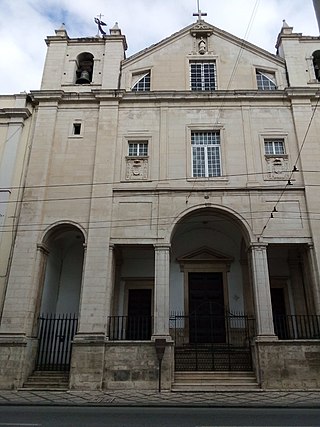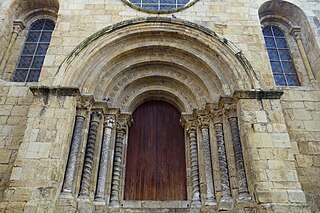16 Sights in Coimbra, Portugal (with Map and Images)
Legend
Premium Sights
Book tickets, guided tours and activities in Coimbra.
Guided Free Walking Tours
Book free guided walking tours in Coimbra.
Welcome to your journey through the most beautiful sights in Coimbra, Portugal! Whether you want to discover the city's historical treasures or experience its modern highlights, you'll find everything your heart desires here. Be inspired by our selection and plan your unforgettable adventure in Coimbra. Dive into the diversity of this fascinating city and discover everything it has to offer.
Sightseeing Tours in CoimbraActivities in Coimbra1. Sé Velha de Coimbra
The Old Cathedral of Coimbra is a Romanesque Roman Catholic building in Portugal. Construction of the Sé Velha began some time after the Battle of Ourique (1139), when Prince Afonso Henriques declared himself King of Portugal and chose Coimbra as capital. The first Count of Coimbra, the Mozarab Sisnando Davides, is buried in the cathedral.
2. Igreja de Santa Cruz
The Monastery of the Holy Cross, also known as the Church of the Holy Cross, is a National Monument in Coimbra, Portugal. Because the first two kings of Portugal are buried in the church it was granted the status of National Pantheon. Founded in 1131 outside the protecting walls of Coimbra, the Monastery of the Holy Cross was the most important monastic house during the early days of the Portuguese monarchy. Saint Theotonius founded this community of Canons Regular of the Holy Cross of Coimbra and served as their first prior. The monastery and church were erected between 1132 and 1223. The monastery was granted numerous papal privileges and royal grants, which allowed the accumulation of considerable wealth, at the same time as it consolidated its position on the politico-institutional and cultural scene. Its school, with its vast library, was highly respected in medieval times and was a meeting point for the intellectual and power elites. Its scriptorium was used for the consolidation of royal power by King Afonso Henriques, thus it was not considered strange that he decided to be buried there.
Wikipedia: Monastery of the Holy Cross (Coimbra) (EN), Heritage Website Sipa, Heritage Website
3. Mosteiro de Santa Clara-a-Velha
The ruins of the Monastery of Santa Clara-a-Velha are located in the city of Coimbra, in Portugal. The monastery was built in the 14th century on the left bank of the Mondego River, but had to be abandoned in the 17th century due to frequent floods. The well-preserved Gothic ruins of the monastery were excavated in the late 20th century, more than 300 years after being abandoned by the nuns.
4. Biblioteca Joanina
The Biblioteca Joanina, sometimes known in English as the Joanine Library, is a Baroque library in Coimbra, Portugal, located at the heart of the University of Coimbra. The Biblioteca Joanina is regularly considered one of the most beautiful libraries in the world.
5. Portugal dos Pequenitos
The Portugal dos Pequenitos is a miniature park in the civil parish of Santa Clara e Castelo Viegas, in the municipality of Coimbra, in the Portuguese district of Coimbra. The park consists of diminutive versions of Portuguese houses and monuments, and has pavilions dedicated to the former Portuguese colonies.
6. Mata Nacional do Choupal
Choupal National Forest is a national forest in Coimbra, Portugal. It is a short distance from the city downtown and runs alongside the Mondego River. The forest has trails for jogging, walking, cycling and horse-riding.
7. Igreja de Santo António dos Olivais
The Church of Santo António dos Olivais, also referred to as the Convent of Santo António dos Olivais, the Parish Church of Santo António dos Olivais and the Sanctuary of Santo António dos Olivais, is located in the parish of Santo António dos Olivais, in the city, municipality and district of Coimbra, Portugal.
8. Capela de São Miguel
São Miguel Chapel or Saint Michael's Chapel is a chapel of the University of Coimbra in Coimbra, Portugal, which was founded in 1290. In architectural style, it is Manueline or Portuguese late Gothic.
9. Aqueduto de São Sebastião
The São Sebastião Aqueduct, popularly known as the Arcos do Jardim, is located on the Martim de Freitas sidewalk, in front of the Botanical Garden of the University of Coimbra, in the parish of Sé Nova, city and municipality of Coimbra, in the district of Coimbra, in Portugal.
Wikipedia: Aqueduto de São Sebastião (PT), Heritage Website Sipa, Heritage Website
10. Teatro da Cerca de São Bernardo
Escola da Noite - Coimbra Theatre Group is a Portuguese professional theatre company, based in Coimbra since its foundation in 1992, being a Public Utility Institution since 1998. It has so far premiered 72 shows and presented about two thousand sessions in Coimbra and on tour, nationally and internationally. In the choice of the repertoire, he seeks a balance between classic and contemporary authors, with two special points of interest: the work of Gil Vicente and the dramaturgy in Portuguese. Aeschylus, Euripides, Chekhov, Lorca, Beckett, Heiner Müller, José Sanchis Sinisterra, Nelson Rodrigues, Plínio Marcos and Abel Neves are some authors he has worked with. In recent years, he has deepened a new front of work – the scenic adaptation of non-dramatic texts from, for example, the works of Ruy Duarte de Carvalho, Rubem Fonseca and Franz Kafka and, in poetry, Adélia Prado and Manoel de Barros.
11. Palácio de São Marcos
The Monastery of São Marcos de Coimbra, now Palácio de São Marcos, was a male convent belonging to the Order of São Jerónimo. It is located near Tentúgal, in the Quinta de São Marcos, parish of São Silvestre, municipality and diocese of Coimbra.
12. Parque de Santa Cruz
The Santa Cruz Park, popularly known as Jardim da Sereia, is located in the parish of Sé Nova, Santa Cruz, Almedina and São Bartolomeu, in the city, municipality and district of Coimbra, in Portugal.
13. Penedo da Saudade
Penedo da Saudade, previously known as Pedra dos Ventos is a historical public garden in Coimbra, Portugal. The garden has partial views of Coimbra skyline and the Coimbra City Stadium. A long winding walkway leads down the hill through a wooded area, from the main section of the garden all the way down to Infanta Dona Maria street.
14. Santa Clara Monastery (Sofia)
It is called the University of Coimbra - Alta and Sofia, the historical-cultural complex classified as a UNESCO World Heritage Site in 2013, housing 4 parishes of the Historic Center of Coimbra located in the city of Coimbra, Portugal. The University of Coimbra is one of the oldest universities still in operation in the world and the oldest in Portugal and the Portuguese-speaking countries and regions.
15. Igreja da Nossa Senhora do Carmo
The Church of Carmo, also referred to as College and Church of Carmo and Home of the Third Order of Saint Francis, is located in the parish of Coimbra, city, municipality, and district of Coimbra in Portugal.
Wikipedia: Igreja do Carmo (Coimbra) (PT), Heritage Website Sipa, Heritage Website
16. Igreja de São Tiago
Igreja de Santiago is a church located at Praça do Comércio in São Bartolomeu parish, Coimbra, Portugal. Built between the late 12th and early 13th centuries, it is one of the great Romanesque monuments of the city, and is classified as a National Monument.
Wikipedia: Igreja de Santiago (Coimbra) (EN), Heritage Website Sipa, Heritage Website
Share
Disclaimer Please be aware of your surroundings and do not enter private property. We are not liable for any damages that occur during the tours.
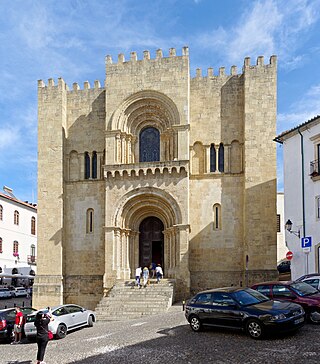
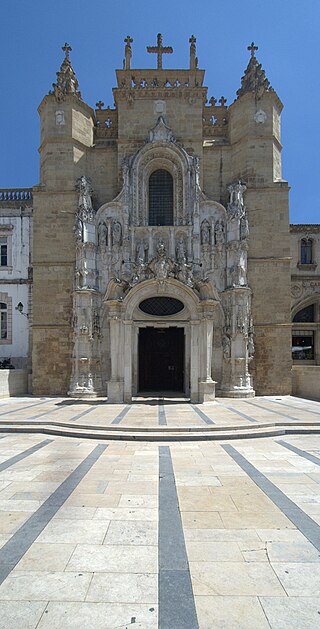
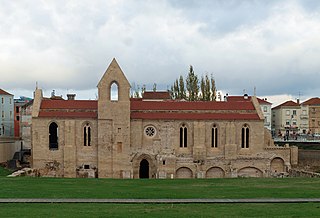
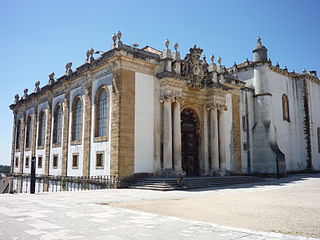
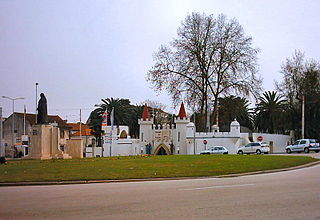
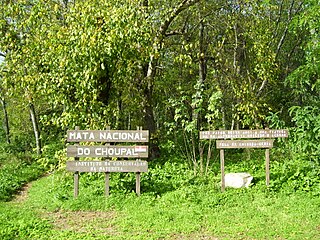
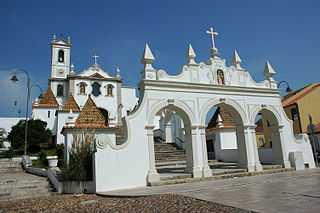
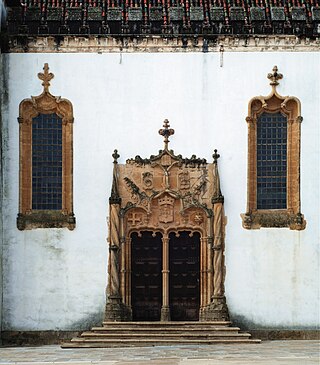
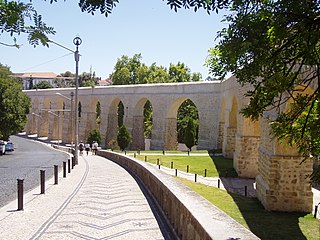
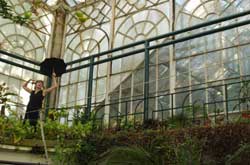
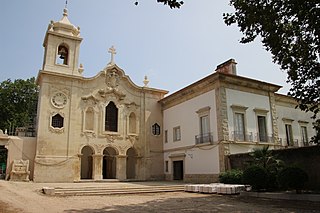
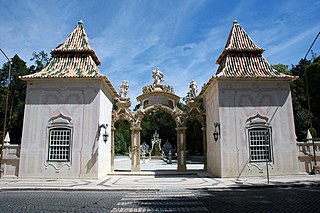
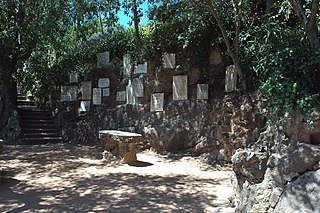
.jpg)
